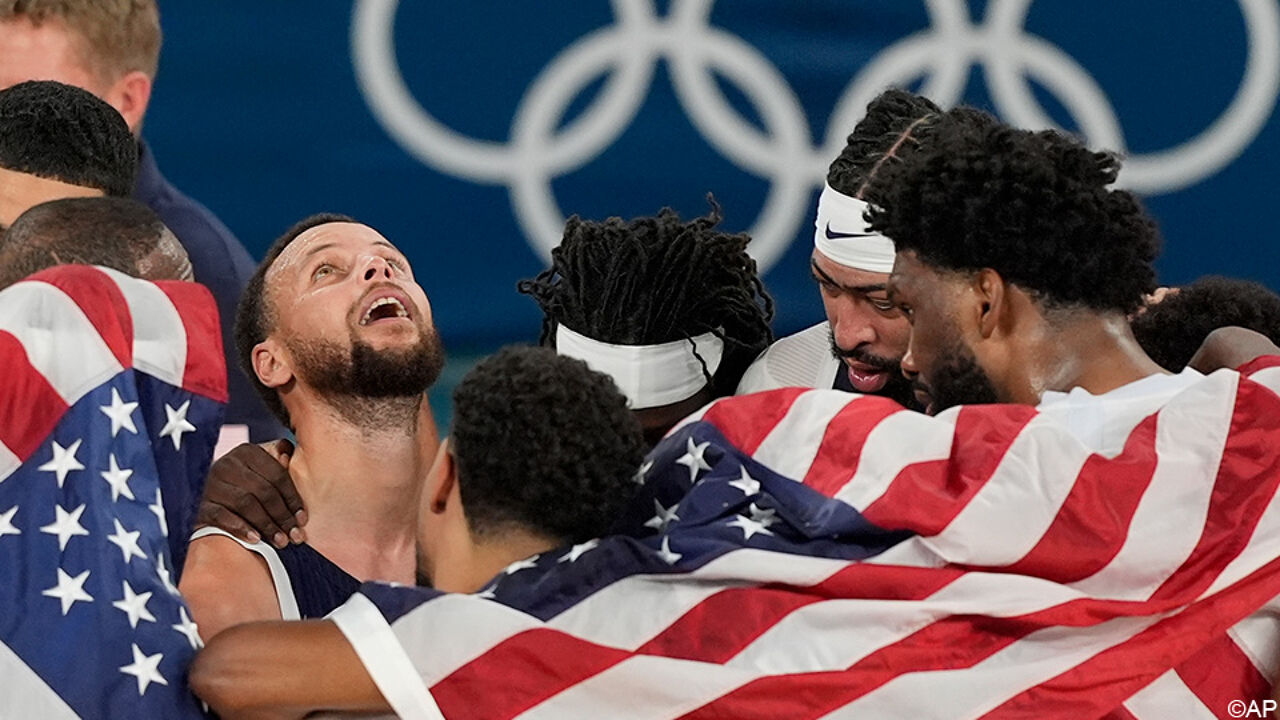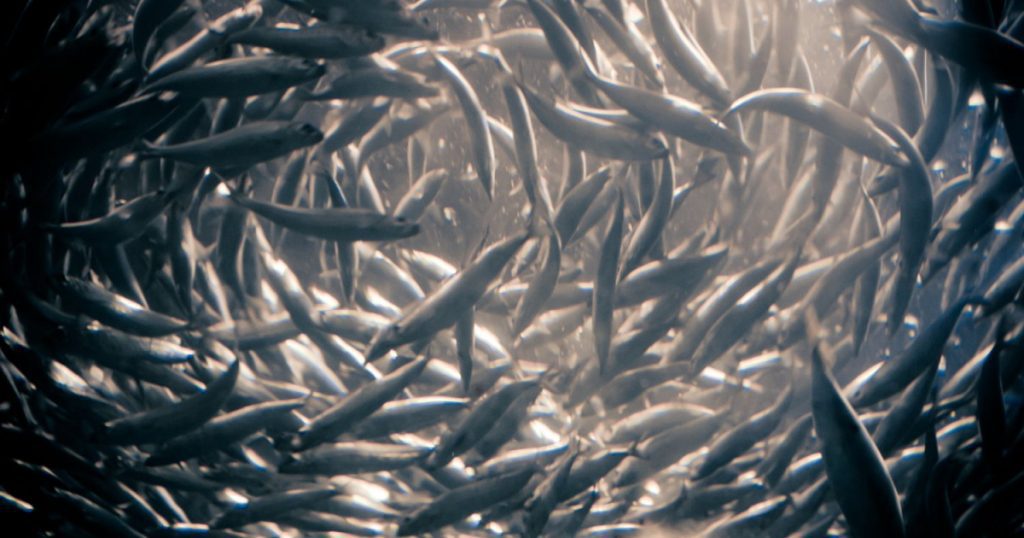School of anchovies. Farmed salmon are fed foods that are often made from smaller species such as anchovies and herring. But the essential nutrients like calcium, vitamin B12 and omega-3 that these fish contain are largely lost when we finally enjoy salmon fillets.
© Cliff / Wikimedia (CC BY 2.0)
The nutrients in small fish such as anchovies or sardines are largely lost when they end up as feed for farmed salmon. “It is smarter and more sustainable to eat these types of fish directly,” say the scientists. nature.
Oily fish is an important part of a healthy diet. This is why we encourage adding oily fish such as mackerel, anchovies and herring to the menu once a week. Salmon also contains many healthy fats and is a popular seasoning among oily fish due to its beautiful color and soft texture. But this is where the shoe bites, because to meet the global demand for salmon, the fish are farmed en masse.
These farmed salmon are fed food that is often made from smaller species such as anchovies and herring. But the essential nutrients like calcium, vitamin B12 and omega-3 that these fish contain are largely lost when we finally enjoy salmon fillets.
Scientists have discovered that farmed salmon production results in an overall loss of essential nutrients. “Eating wild species used to feed salmon directly is a smarter choice,” they say.
Essential materials are lost
The research showed that there was a decrease in six of the nine nutrients: calcium, iodine, iron, omega-3, vitamin B12 and vitamin A.
“When species such as sardines, mackerel and anchovies are used as animal feed, up to 80% of important nutrients such as calcium and iodine are wasted.”
The amount of calcium in fish feed was five times higher than in salmon fillet, iodine was four times higher, and iron, omega-3, vitamin B12 and vitamin A were more than 1.5 times higher.
Wild forage and salmon contain similar amounts of vitamin D. Zinc and selenium were found to be higher in salmon compared to wild feed species. According to the team, this is due to other ingredients found in salmon feed, as well as a sign of progress in the farmed salmon sector.
Sardines are better than salmon
“People love eating salmon and supporting sustainable growth in this sector, but for their health, they should consider eating wild fish species such as sardines, mackerel and anchovies,” says the lead author. David Wheeler, a zoologist at the University of Cambridge. “This way they get essential nutrients directly to their plates.”
Read also

What's more, it's much better for the planet, researchers say. “Directly consuming the one-third of today's fish that ends up as feed for farmed fish would be the most effective way to maximize our marine nutrients.”
Marine fisheries are an important part of local and global diets, but large amounts of catches are converted into animal feed. He says prioritizing nutritious seafood for people will benefit our food system and ocean sustainability James Robinson From Lancaster University.
Feed the world
According to the researchers, this approach would also help address global nutrient shortages. Ultimately, feeding the world sustainably requires improving available nutrients. “If species such as sardines, mackerel and anchovies are not consumed directly, but rather turned into animal feed, up to 80% of important nutrients such as calcium and iodine will be wasted,” they say.
According to the researchers, farmed salmon is an excellent source of nutrition, but a more strategic use of feed ingredients, for example from fishing by-products, is more appropriate. The research has been published in the journal Nature's food.

“Coffee buff. Twitter fanatic. Tv practitioner. Social media advocate. Pop culture ninja.”












More Stories
Which can cause an increase in nitrogen.
The Central State Real Estate Agency has no additional space to accommodate Ukrainians.
The oystercatcher, the “unlucky national bird,” is increasingly breeding on rooftops.